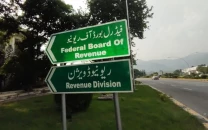Forex rules put unnecessary controls on capital flow in Pakistan
Though monitoring is essential, it should not come at cost of capital flow

A Reuters representational image.
This index measures freeness or openness of a country with regard to different aspects of governance and the economy.
To improve rankings, countries work to lower tax rates, minimise regulations, promote free trade and attract investment through opening markets. Pakistan currently ranks 131st out of 186 countries, same as in 2018. However, its regional ranking has dropped from the 31st to 32nd place among 43 countries in the Asia-Pacific region.
The Economic Freedom Index takes into account several aspects where financial freedom is one indicator. The 2019 report states “…in Pakistan excessive state involvement in the economy and restrictions on foreign investment are serious drags on economic dynamism.”
We observe that foreign exchange regulations in Pakistan impose unnecessary controls on capital flow, particularly on the entities dealing with foreign direct investment (FDI)-related capital. Though monitoring of these flows is essential from the money laundering perspective, it should not come at the cost of capital flow. In June 2018, Pakistan was officially placed on the Financial Action Task Force’s (FATF) grey list as, according to the organisation, the country had been unsuccessful in taking measures against terror financing.
Consequently, Pakistan had to introduce some reforms in foreign exchange regulations in order to meet international obligations.
Apart from the need to contain illegal flow of money from the country, IMF staff country report states that Pakistan maintained exchange restriction and multiple currency practices. This arose from the imposition of 100% cash margin requirement on different types of consumer goods imports, which was later waived. Such tightening measures do cater to issues such as a widening current account deficit but simultaneously damage the business environment.
In contrast, several countries have worked on relaxing exchange controls by eliminating restrictive measures that apply to different transactions. This indicates that in Pakistan the foreign exchange regime does not seem to be faring well.
Some segments of the business community believe that foreign exchange regulations in Pakistan impose unnecessary controls on the capital flow. These excessive controls disturb the flow of capital.
Pakistan’s foreign exchange regulations are designed to hinder movement of currency from Pakistan. In the face of challenges such as over-invoicing, money laundering and terror financing, these measures make sense but for day-to-day investment operations the same regulations create hurdles. This kind of volatile environment is neither good for the growth of existing businesses nor good for Pakistan’s investment climate.
Pakistan needs to work on its regulations. When forex reserves shrink, the government imposes all sorts of regulations to stop capital flight. Such circumstances, in addition to limitations on repatriating profits abroad, make investors unwilling to invest in Pakistan.
Lessons to learn
Pakistan needs to learn from countries such as Turkey and Malaysia, which have been successful in drawing foreign investment and enjoying its spillover effects.
These countries started off with similar economic policies pertaining to foreign exchange regulations, however, over time they adopted policies and measures to open their economies and ensure financial freedom for increased investments, in addition to having stable policies.
Through structural reforms they have managed to simplify procedures for foreign investment. By having more transparent operations and reducing government regulations, they have been able to improve their economies.
Pakistan has a weak business environment and needs to work on making regulations more dependable and transparent.
Simplifying procedures for foreign investment and re-emphasising equal treatment of both foreign and local firms, in addition to abandoning some bureaucratic formalities, can help Pakistan build a healthy environment for all business firms.
This can all be achieved by bridging the existing gap between regulating authorities and the private sector and by enhancing the business environment through improvement in the ease of doing business, access to imports and labour markets.
The writer is an economist and is currently working for the development sector
Published in The Express Tribune, February 24th, 2020.
Like Business on Facebook, follow @TribuneBiz on Twitter to stay informed and join in the conversation.


















COMMENTS
Comments are moderated and generally will be posted if they are on-topic and not abusive.
For more information, please see our Comments FAQ